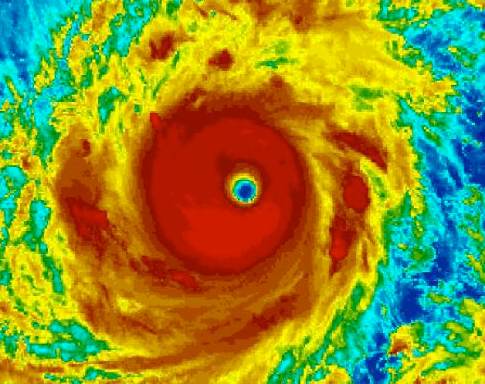Insurance and reinsurance market losses from the impact of typhoon Mangkhut in Hong Kong alone could reach as much as $1 billion, according to a report from local media.
 Typhoon Mangkhut slammed Hong Kong yesterday, with strong hurricane force winds swaying skyscrapers and a storm surge reaching as much as 3 metres in places.
Typhoon Mangkhut slammed Hong Kong yesterday, with strong hurricane force winds swaying skyscrapers and a storm surge reaching as much as 3 metres in places.
It’s clear from media coverage that there have been significant coastal impacts from storm surge in the economically prosperous areas of Hong Kong, as well as wind damage across the city.
Hong Kong managed to avoid a direct hit from the eye of typhoon Mangkhut, but impacts were still significant and damage was seen to modern and older buildings, along with the storm surge.
Building damage looks to be more superficial than structural in the main, in terms of windows broken, cladding torn off, etc, but the wide area impacted means there will be a significant economic hit to Hong Kong from the typhoon and as a result a hit to exposed insurance and any reinsurance interests.
The South China Morning Post has reported that an assessor forecasts insured losses of more than $1 billion in Hong Kong alone from typhoon Mangkhut and said that the storm could cause people and businesses to look again at the resilience of their properties.
At a $1 billion insurance market loss, typhoon Mangkhut would be the most costly to ever strike Hong Kong.
Authorities reported more than 1,500 reports of fallen trees and over 500 reports of broken windows, totals that far exceed those seen after typhoon Hato struck Hong Kong last year.
The paper notes that skyscrapers such as the 88-storey International Finance Centre in Central Hong Kong and 118-storey International Commerce Centre in West Kowloon even experienced damage, despite having been built to withstand much stronger winds than typhoon Mangkhut eventually brought to the city.
The reason for the extensive damage to Hong Kong, despite the fact the storm passed to the south of the city, was the wide eye and swathe of hurricane force winds, the higher than anticipated storm surge and also the duration of the impacts, with typhoon force winds impacting the city for around 12 hours (twice as long as with Hato).
As a result typhoon Mangkhut could become the most costly Hong Kong typhoon loss that the insurance and reinsurance industry has experienced.
Business interruption is also likely to be a factor in the eventual market loss, given Hong Kong’s productivity was severely dented on Monday and clean-up could take a number of days before everything gets back to normal in the city. One estimate suggested that a single day’s shutdown for Hong Kong could cost the city as much as $930 million in economic activity.
Typhoon Mangkhut also caused severe damage in the Philippines, before it reached Hong Kong, then moved on to cause significant impacts in the Guangdong region of southern China.
As a result the eventual insurance and reinsurance industry loss from typhoon Mangkhut will be larger than just the toll experienced in Hong Kong and when aggregated there will be the potential for some leakage into the ILS market, largely through sidecars, quota shares and other collateralised reinsurance arrangements.
 View all of our Artemis Live video interviews and subscribe to our podcast.
View all of our Artemis Live video interviews and subscribe to our podcast.
All of our Artemis Live insurance-linked securities (ILS), catastrophe bonds and reinsurance video content and video interviews can be accessed online.
Our Artemis Live podcast can be subscribed to using the typical podcast services providers, including Apple, Google, Spotify and more.






























